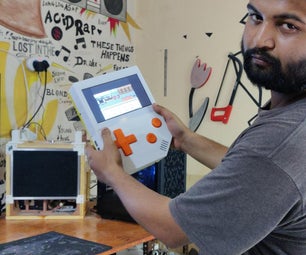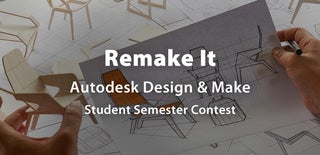Introduction: 3D Printed Phone Stand
3D printed phone stand incorporating generative design elements from Fusion 360.
Supplies
Software: Autodesk Fusion 360, Bambu Studio
Hardware: Bambu 3D Printer
Step 1: Concept + Inspiration
For this assignment, I knew I wanted to make a phone stand for my lab desk.
Last year, I laser-cut and painted the stand I have at home, and I am generally happy with it. However, I also explored other options online, including the general dimensions of the one featured in MariusCAD's tutorial on YouTube. This one is smaller and also features a short lip to keep the phone from sliding off.
I designed both options before printing.
Step 2: Creating a Short Stand
Knowing that I would ultimately be using Fusion's generative design feature, I started by roughly following MariusCAD's tutorial to get proper dimensions for the piece the phone would rest on. I also modeled the bottom of the stand so that only the pieces in between would be generated.
My generative study returned many options, although most of them were only slight variations of the same idea. Despite the repetition, I do like the branch-like design. It feels like the stand is organic and has grown from the ground.
Step 3: Creating a Larger Stand
I decided that I would rather have a stand with full backing and modeled another after my home one. I also kept the anti-slip lip from the previous design.
This study was nearly identical to the previous one, except for the changed dimensions. I chose my favorite tree structure, which wasn't featured in the recommended outcomes, and prepared it for print.
Step 4: Printing
The stand took roughly two and a half hours to print using branch supports. Once removed, the branches left behind a wavy texture. I actually really like this artifact, as it looks like the growth rings and other features of a tree.
Step 5: Final Thoughts
It was not until after I completed my print that I realized I forgot to add a charging port. The good news is I don't typically need to charge my phone during the day. However, I am thinking about printing another one with this feature to replace my home stand.
Overall, I am really happy with my design and outcome. This is something I tend to use often, and I was happy to design it with (nearly) all of my favorite features.
Autodesk's Generative Design Feature was a bit underwhelming. Rather than provide a couple of different design ideas in each study, I found that most of my options nearly mirrored each other. I realize that this is likely because the model is choosing the optimal design that will handle my structural loads using the least amount of materials possible. It then iterates on that one 'optimal' option. However, I would prefer it choose the 5-10 most optimal uses of material, then iterate over those. That way, I have some truly differing options when exploring my results.








![Tim's Mechanical Spider Leg [LU9685-20CU]](https://content.instructables.com/FFB/5R4I/LVKZ6G6R/FFB5R4ILVKZ6G6R.png?auto=webp&crop=1.2%3A1&frame=1&width=306)




